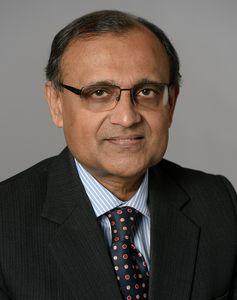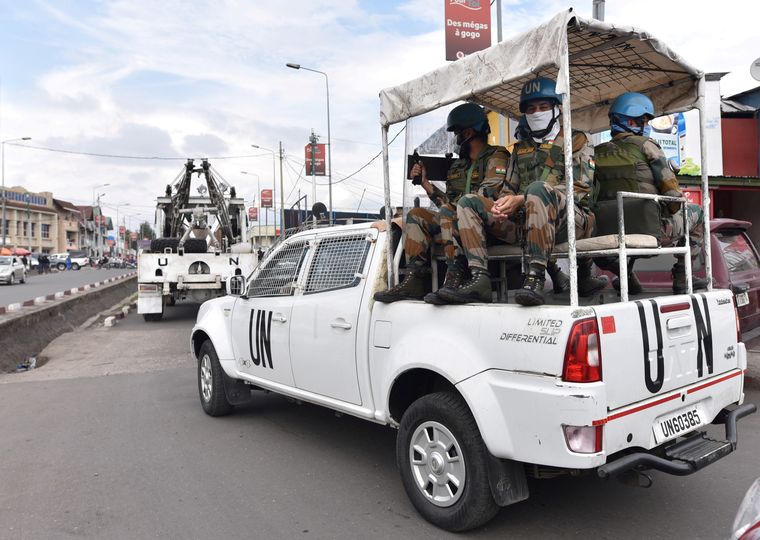IT HAS BEEN A YEAR since India took its place in the Security Council for the eighth time as an elected member. But certain things have not changed. The pandemic is still raging. The world remains divided and polarised on issues of global importance. Conflicts on the agenda of the Council have persisted and new ones have emerged. Terrorism has not only continued unabated but expanded its tentacles to new areas, especially in Africa.
The highlight of India’s presence in the Security Council, so far, was certainly our presidency in August 2021. It was a presidency that saw several historic firsts. The prime minister of India for the first time chaired a high-level Security Council meeting. For the first time, the Security Council adopted a presidential statement on maritime security, capturing its holistic concept, including the United Nations Convention on the Law of the Sea, freedom of navigation, piracy, terrorism at sea, etc.
Given our predominant role in UN peacekeeping over the years, where India continues to be the largest troop contributing country, we have given UN peacekeeping a strong focus during our stint. The external affairs minister [Dr S. Jaishankar] chaired two sessions, one of which was on Technology and Peacekeeping, which was another first. After nearly five decades, India piloted a resolution ‘protecting the protectors’ calling for accountability for crimes against peacekeepers.
To “Walk The Talk” on our commitment to protect UN peacekeepers, we contributed $1.67 million to launch the UNITE Aware technology platform. We readily responded to the request of the UN Secretary General [Antonio Guterres] and gifted two lakh Covid vaccines to cover every peacekeeper, in every peacekeeping mission, throughout the world, in addition to upgrading two of our hospitals in Democratic Republic of Congo and South Sudan.
Where India’s interests are involved, it goes without saying that we did not hesitate to put forth our views firmly. It was in August, during our presidency, that the security situation in Afghanistan rapidly deteriorated, which demanded that the Security Council act without delay. We did so with the urgency it deserved. After two meetings and three press statements, a crucial resolution was adopted under our presidency, in the session chaired by the foreign secretary [Harsh Vardhan Shringla].
This resolution—2593—encapsulates the collective sentiments of the international community. It demands assurances that Afghan soil will not be used for terrorism against other countries and that the authorities in Kabul will act against all terrorists, including those designated by the [UN Security Council resolution] 1267 committee; it presses for inclusive governance in Afghanistan; seeks safeguards on treatment of minorities, women and children. These are the minimum expectations of the international community, and our approach to Afghanistan will be guided by these commitments.
At the same time, as a long-standing partner of Afghanistan and as chair of the Taliban Sanctions Committee, we are also working closely with our partners to address the deteriorating humanitarian situation in the country. We have delivered life-saving humanitarian assistance and vaccines bilaterally.
On our eastern front, India has played the role of a bridge, bringing together divergent views on Myanmar in the Council. We have expressed our support for the Association of Southeast Asian Nations’ leading role. We have also urged reverting to the process of democratic transition, for cessation of violence and for immediate release of leaders. India has been consistent in its support for transitions to democracy, whether in Myanmar or in Africa.
Countering terrorism is an important national priority for us in the UN. During our presidency, the external affairs minister chaired a briefing on the Islamic State of Iraq and the Levant/Dae’sh. Across regional files, we have consistently highlighted the importance of remaining united against terrorism and have warned against diluting our collective stand by justifying terror. We cannot afford to go back to the pre-9/11 era where the world was divided into “my terrorist” and “your terrorist”. India also helped in shaping the global counter-terrorism strategy in the General Assembly.
Coming to Africa, where the Security Council has the largest focus, India has sought to bring balance to the debates, given our historical friendship with Africa. We have made our views known against what we, and the African countries, perceive as unjust attempts to continue to burden countries with unrealistic benchmarks on their sanctions regimes. We have called for greater commitment from the international community to assist Africa fight terrorism and make “African solutions for African problems” a reality through sustained financial and logistics support.
We have been chairing the Libya Sanctions Committee in the Security Council, and have been supportive of the political process that is underway in Libya. In the Middle East, we have leveraged our strong and historical links to put forward our views, inter alia, on Palestine, Yemen, Syria, Lebanon and Iraq.
On Syria, we have stood firmly for enhanced and effective humanitarian assistance to all Syrians throughout the country without discrimination, politicisation or preconditions, while fully respecting the sovereignty and territorial integrity of Syria. We have fully supported Columbia in their pursuit for peace. We also continue to be steadfast in our support of the women, peace and security agenda.
On issues affecting the developing world, India has been a strong voice to protect their interests. We firmly opposed the attempt by some countries to bring the issue of climate change into the Security Council under the guise of linking it with security. We saw this attempt for what it was—to have the Security Council take over the climate change agenda and take decisions without the involvement of most developing countries.
It sought to undermine the hard-won consensus and balance in climate change architecture under the principles and provisions of the United Nations Framework Convention on Climate Change, and hand over responsibility to a body, which neither works through consensus nor is reflective of the interests of the developing countries. We support real climate action and serious climate justice, and call on developed countries to fulfil their commitments.
As we end half tenure in the Security Council, our steadfast commitment to safeguard the interests of the developing world is reflected in our performance. Our performance again vindicates why the world needs India to be at the horseshoe table permanently.
—Ambassador Tirumurti is Permanent Representative of India to the United Nations.




